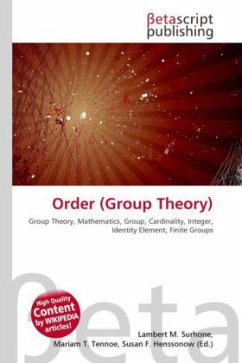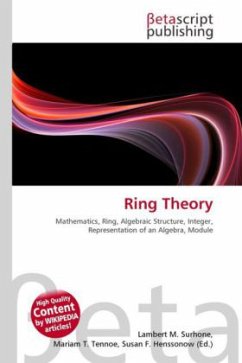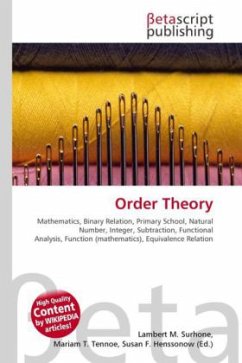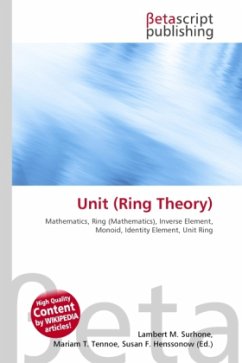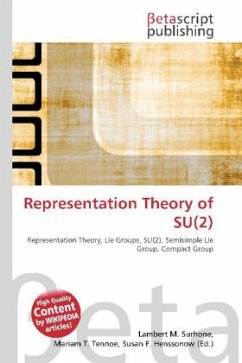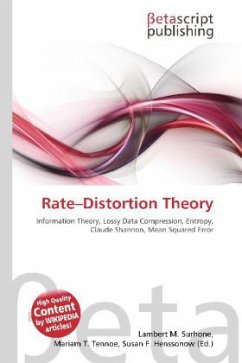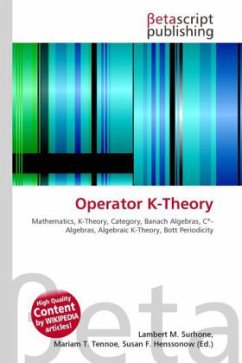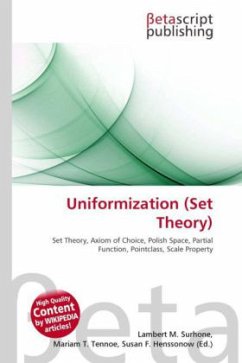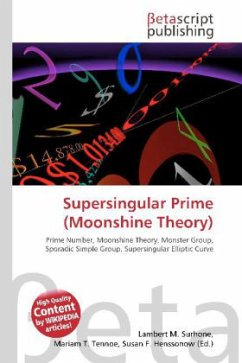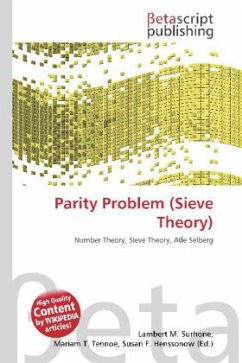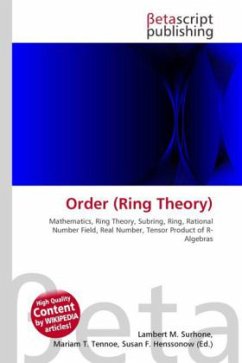
Order (Ring Theory)
Versandkostenfrei!
Versandfertig in 6-10 Tagen
26,99 €
inkl. MwSt.

PAYBACK Punkte
13 °P sammeln!
Please note that the content of this book primarily consists of articles available from Wikipedia or other free sources online. In mathematics, an order in the sense of ring theory is a subring mathcal{O} of a ring R that satisfies the conditions.The third condition can be stated more accurately, in terms of the extension of scalars of R to the real numbers, embedding R in a real vector space (equivalently, taking the tensor product over mathbb{Q}). In less formal terms, additively mathcal{O} should be a free abelian group generated by a basis for R over mathbb{Q}. The leading example is the c...
Please note that the content of this book primarily consists of articles available from Wikipedia or other free sources online. In mathematics, an order in the sense of ring theory is a subring mathcal{O} of a ring R that satisfies the conditions.The third condition can be stated more accurately, in terms of the extension of scalars of R to the real numbers, embedding R in a real vector space (equivalently, taking the tensor product over mathbb{Q}). In less formal terms, additively mathcal{O} should be a free abelian group generated by a basis for R over mathbb{Q}. The leading example is the case where R is a number field K and mathcal{O} is its ring of integers. In algebraic number theory there are examples for any K other than the rational field of proper subrings of the ring of integers that are also orders. For example in the Gaussian integers we can take the subring of the a + bi, for which b is an even number. A basic result on orders states that the ring of integers in K is the unique maximal order: all other orders in K are contained in it.



